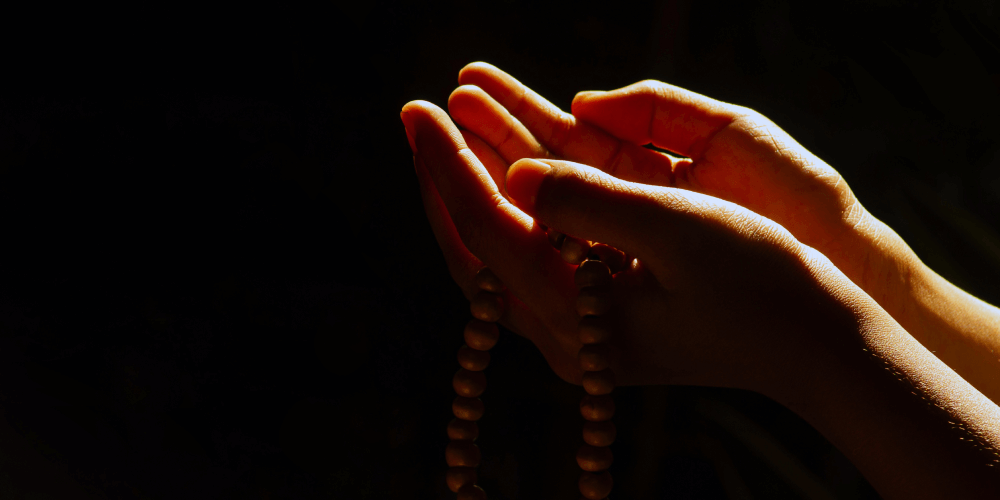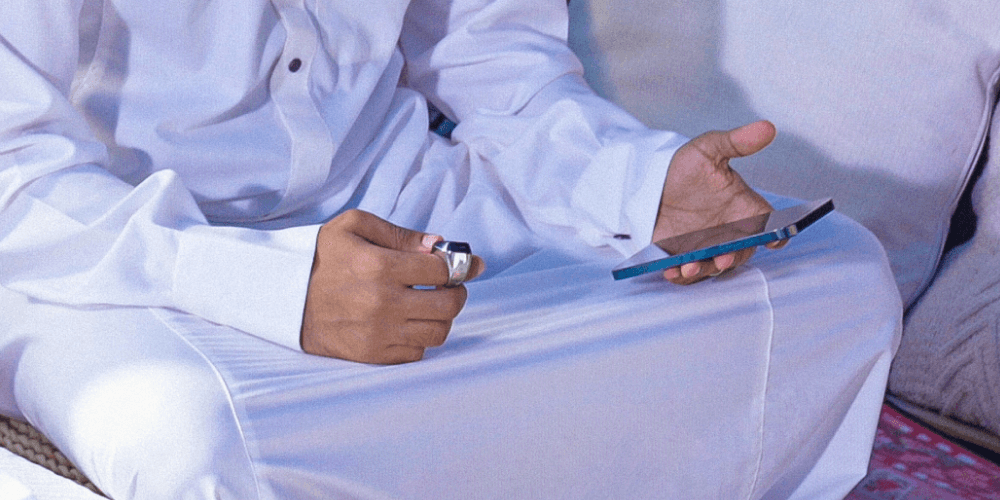Today’s fast-paced and digitally-dominated world is full of many trends which in one way or another create numerous challenges that are often overwhelming and even emotionally demanding. To combat daily stresses and stay focused, the idea of resilience has attracted considerable focus. Resilience means the ability to deal with the adversities in life, adapt to change, and maintain good health and well-being.
As Muslims, we understand that gaining strength isn't merely about pushing through — it’s about relying on our beliefs and having confidence in the effectiveness of dua and prayer. Belief and supplication are more than mere activities in Islam; they serve as vital links that unite us directly with Allah’s (سُبْحَانَهُ وَتَعَالَى) power.
Today, we will shed light on the importance of prayers and dua in building mental resilience and helping believers enhance their psychological well-being. We will also highlight how the act of Wudu (ablution) is scientifically proven to improve one’s physical and psychological health.
What is Mental Resilience?
In general, mental resilience refers to the capability to perform seven specific tasks. Regardless of an individual’s occupation or position in life, the significance of these seven mental traits is immense:
· Focus: Concentrate on what is important and eliminate distractions
· Manage: Stay composed and self-assured in stressful situations
· Determination: Put in unwavering effort for as long as needed to reach objectives
· Adaptability: Handle challenges and bounce back swiftly from errors and setbacks
· Inspiration: Carry out what must be done even when you lack the desire
· Empathy: Acknowledge and react to the feelings of others
· Positivity: Maintain an optimistic and constructive attitude when faced with negative circumstances
How Faith Influences Mental Resilience
Overcoming the obstacles of this allusive and often deceitful world demands faith-inspired mental resilience. When you possess mental toughness, you do not concentrate on manipulating the situation; instead, you emphasize trusting Allah (سُبْحَانَهُ وَتَعَالَى) and self-control. When faced with a tough or challenging circumstance, mentally resilient individuals don't linger on their emotions; they concentrate on what actions are necessary.
However, when individuals with a weak mindset face difficulties and challenges, they concentrate on themselves and their surroundings, obsessing over the negative aspects and evading or complaining about fulfilling necessary tasks.
These contrasting mentalities lead to two distinct approaches to dealing with life's challenges. The attitude of “what must be accomplished” fosters clarity and bravery, reacting with insight and self-control, and is the mentality of the believers. The mentality of those lacking faith is “how do I feel” and focuses on negative aspects, leading to anxiety and stress.
Building Mental Resilience Through Belief and Religion
Mental strength necessitates proactive belief. Mental resilience doesn't occur magically just because we are Muslims. We need to cultivate and enhance our resilience and emotional fortitude through worship and supplication.
Finding Comfort in Belief
A fundamental aspect of Islam is the profound spiritual bond it provides to its adherents. Turning to Allah (سُبْحَانَهُ وَتَعَالَى) during difficult times offers a feeling of comfort and peace. Muslims are urged to perform regular prayers (Salah) to find guidance and achieve inner tranquility. This approach aids people in coping with stress and anxiety, fostering a constructive mental state.
Endurance and Persistence
The Quran and Hadith insist on perseverance in challenging times. Muslims are encouraged to be strong and rely on Allah’s (سُبْحَانَهُ وَتَعَالَى (prudence and wisdom. This outlook may help people begin to perceive losses as opportunities for growth, resulting in enhanced psychological toughening.
Mindfulness and Contemplation
Islamic traditions, including recitation of the Quran and practicing meditation (dhikr), can help in focus on our inward feelings and improve mental resilience. These practices can help individuals lower stress levels and enhance their ability to control emotions and overall physical well-being. Moreover, mindfulness helps people remain anchored in the current moment and constructively handle negative thought processes.
Community and Support
Islam emphasizes the significance of the community (Ummah). The encouragement and understanding provided by fellow believers in tough times can greatly influence a person's mental well-being. Performing congregational prayers, taking part in Islamic activities, and engaging in charitable acts cultivate a sense of community that alleviates feelings of loneliness.
Positive Ethical Principles
There are several character attributes that Islam encourages followers to practice, such as thankfulness, kindness, humility, and clemency. Such attributes contribute to a positive attitude towards life, good relations with others, and strengthened emotional health. Practicing gratitude, for instance, has been linked to better feelings and more satisfaction with life.
The Connection Between Wudu and Mental Resilience
The word Wudu is derived from the term Al-Wadha'ah, signifying purity and radiance. It serves as a method to cleanse oneself from external and internal impurities using water. Wudu is a direct instruction from Allah (سُبْحَانَهُ وَتَعَالَى) found in the Qur'an, serving as a method of purification prior to prayer.
Research has shown that practicing Wudu as instructed by the Prophet Muhammad (ﷺ) can genuinely offer both physical and mental advantages to individuals. Wudu can lessen anger, as during anger our blood vessels narrow, resulting in increased blood pressure. Water is beneficial for relaxing the blood vessels to allow them to widen once more and blood pressure becomes normal again. This can protect us from multiple chronic illnesses, including coronary heart disease, stroke, and even diabetes.
As noted in another research, Wudu aids in enhancing mental focus and soothing the spirit. This is because while performing Wudu, wiping the head with water is necessary. This creates a soothing impact on our minds, allowing us to achieve tranquility. When our minds are tranquil, we can more effectively focus our minds.
Wudu can additionally help reduce stress responses. Wudhu performed with complete sincerity and seriousness can nurture positive insights and motivations, leading to a positive emotional reaction (optimistic thinking), which prevents stress responses.
Final Thoughts
Strength isn't simply generated within us — it comes when we have faith in Allah's (سُبْحَانَهُ وَتَعَالَى) promises, pray consistently, and strengthen our faith regularly. Regardless of the difficulties we encounter in our day-to-day lives, we can discover tranquility and resilience through belief and supplication.
Islam provides a comprehensive structure for fostering resilience and enhancing mental well-being. By encouraging the pursuit of comfort in faith, practicing mindfulness, adhering to good moral principles, and leading a balanced life, Muslims can develop the inner resilience required to face life's difficulties. By embracing these principles in their lives, people can discover solace, meaning, and resilience in their faith, which can ultimately enhance their mental health.
---Zain Jawwad






Leave a comment
All comments are moderated before being published.
This site is protected by hCaptcha and the hCaptcha Privacy Policy and Terms of Service apply.